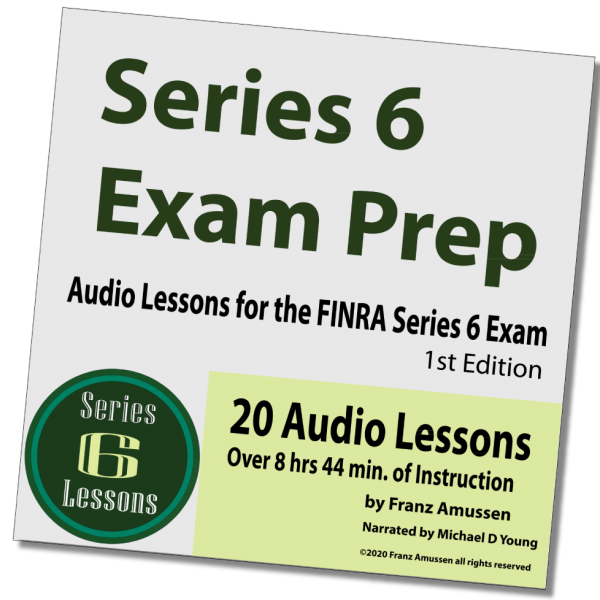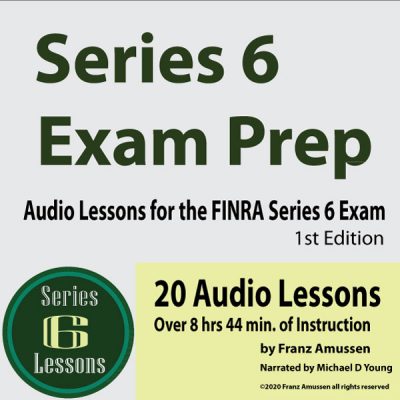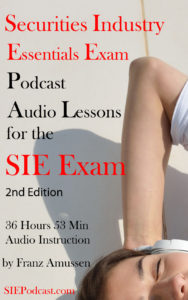Series 6 Lesson 13 Code of Procedure
Series 6 Lesson 13 Code of Procedure is this lessons topic. FINRA has a Code of Procedure (COP) that can be used to investigate violations of its law. It gives FINRA the power to “suspend, expel, bar, and censure” those under its jurisdiction who have violated the rules.
A person who has violated the rules will be notified of the infraction and will be asked to respond in writing. These requests must be met within 25 days. You will be required to cooperate with the investigation and produce any documentation that is required of you. If you do not respond or cooperate in the process, a decision will be made without your input, known as a default decision.
You can file an appeal to the National Adjudicatory Council (NAC), then to the SEC, and finally to federal courts. You will have to come up with legal fees, however. You can choose not to dispute the charges, which is called Acceptance, Waiver, and Consent. You will sign a waiver that you will accepted the decision handed down.
For a minor rule violation, you will likely be fined, but the maximum amount is still quite low. You will also get a letter of censure in your file. The following actions happen for major violations:
- Censure
- Fine
- Suspension, which is temporary
- Expulsion, which means the firm is kicked out
- Barred, a person is permanently banned.
Disputes between brokers and member firms are settled through an arbitration process, which means that there is only one chance and no appeals. They cannot go to civil court. It is a faster and cheaper process than civil court and can be initiated up to six years after the inciting event.
A non-public arbitrator is one that is an industry professional. A public arbitrator is a person who is not a financial industry professional. They are also not immediately related to anyone who is.
For a claim of $50,000 or less, FINRA will appoint a public arbitrator, or it can be qualified for simplified arbitration, where the director of arbitration takes in all the facts and makes a ruling.
For $50,000 to $100,000, FINRA will appoint a public arbitrator, unless both parties agree to having three (two public and one non-public).
For greater amounts, or those which are not seeking monetary damages, the default is three arbitrators, (two public and one non-public) unless both parties agree to having one.
Arbitration should take less than 30 business days. The arbitrators then give out a document called an award, which details a summary of the incident, the findings of the arbitrators, the damages sought and the damages awards. These documents are publicly available. The person has 30 days in which to pay the damages. If they do not pay, FINRA will punish them and then report them to collection agencies.
FINRA firms and members are required to report any charges or convictions with 30 days. These will be reported by the BrokerCheck system.
Members can try to have their bad records expunged by going through the courts and providing documentation.
Series 6 Lesson 13 Code of Procedure
We also offer lessons for:
The Series 7 Exam
https://gumroad.com/l/ILYu
The Series 22 Exam
https://series6lessons.com/series-22-exam/
The Series 63 Exam
https://series6lessons.com/series-63-exam-lessons/
The Life Health Insurance Exam
https://series6lessons.com/insurance-lessons/
The SIE Exam (Securities Industries Essentials Exam)
https://series6lessons.com/finra-sie/
Click on any of them to find out more
Podcast: Play in new window | Download (Duration: 10:51 — 4.5MB)
Subscribe: Apple Podcasts | RSS | Subscribe to Podcast




